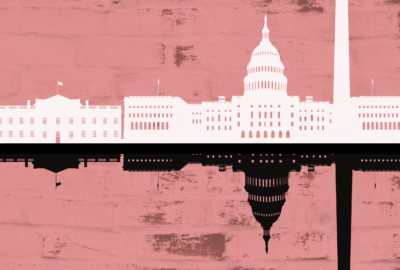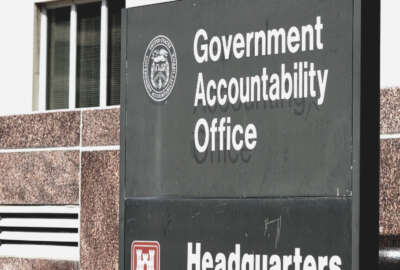Agencies saved about half a trillion dollars via GAO recommendations over a decade
Agencies and Congress saved more than half a trillion dollars over the past decade through the Government Accountability Office’s recommendations.
Agencies and Congress are projected to have saved more than half a trillion dollars over the past decade through some of the Government Accountability Office’s recommendations.
The opportunity to save tens of billions of additional dollars is still on the table, GAO said in a recent report, if agencies and lawmakers address some of its nearly 500 recommendations that remain unfulfilled.
GAO, in its annual report on federal program duplication, fragmentation and overlap said agencies and Congress fully met 56% of the nearly 1,300 recommendations it issued between 2011 and 2022, and partially addressed another 18%.
Those actions led to approximately $552 billion in cost savings and revenue increases over the past decade — a $35 billion increase from GAO’s last duplication report.
The watchdog agency, meanwhile, added 94 new actions agencies or Congress could take to improve the efficiency and operations of the federal government.
The IRS, for example, could save about $20 million a year by improving taxpayer service and setting up better ways to flag and monitor interest paid on tax refunds.
GAO in April found the IRS paid more interest on delayed tax returns this filing season because of processing delays.
The IRS spent more than $3 billion in interest, after running into delays processing tax returns. That’s a 50% increase compared to the prior year.
Over the past seven years, the agency has paid $14 billion in interest on delayed tax returns. GAO finds the IRS also spent $177 million last year on overtime for employees who worked in returns processing returns and service.
The report finds the Energy Department could save billions if it found less expensive ways to dispose of nuclear and hazardous waste.
The Navy could also achieve billions of dollars in savings through improving its shipbuilding acquisition practices and taking steps to ensure ships can be efficiently sustained.
The Office of Management and Budget could save billions of dollars over the next five years through category management efforts to improve how agencies buy common goods and services.
Areas for improvement under category management include addressing data management challenges for agencies and establishing new performance metrics to help agencies achieve cost savings, as well as avoid duplicative contracts.
Beyond duplication, the report also looks at instances where multiple agencies work in the same field and have yet to fully coordinate with each other.
GAO, for example, said two governmentwide technology transformation services, the General Services Administration’s 18F program and OMB’s U.S. Digital Service, should work together to avoid overlapping with each other’s work.
The new recommendations from GAO also go beyond saving money. GAO said federal agencies could improve U.S. competitiveness if they better coordinated their research in quantum computing.
President Joe Biden earlier this month directed agencies on how to prepare for the era of quantum computing. A national security memorandum signed by the president serves as a guidebook for agencies and outlines steps agencies must take to protect their networks from advances in quantum computing.
Research shows quantum computers within the next decade will become capable of breaking much of the encryption available today. The memo also directs the National Institute of Standards and Technology to create a Migration to Post-Quantum Cryptography Project.
The Defense Department implemented the most recommendations over the past decade, followed by the Health and Human Services Department and the IRS.
About 64% of GAO’s open recommendations are concentrated among 10 agencies:
- Treasury Department
- Department of Health and Human Services
- Social Security Administration
- Defense Department
- Labor Department
- Small Business Administration
- Education Department
- Agriculture Department
- Department of Veterans Affairs
- Office of Management and Budget
Governmentwide efforts to consolidate data centers under the Federal IT Acquisition Reform Act (FITARA) have led to major savings over the past decade.
GAO found that 22 federal agencies consolidated their data centers and saved about $5.7 billion in the process. This work may continue to pay dividends since GAO expects agencies could save tens of millions of additional dollars through actions already completed.
DoD in fiscal 2020 closed 46 data centers and identified $178.5 million in additional data center-related cost savings.
Those savings track with what GAO and the House Oversight and Reform Committee determined at the latest FITARA scorecard hearing in January. Every agency received an “A” letter grade under the data center consolidation section of the FITARA scorecard.
GAO found that the Education Department saved about $43 billion through 2020 by improving cost estimated for student loan income-driven repayment plans. The VA, meanwhile, saved $10.8 billion from fiscal 2013-to 2017 through strategic sourcing.
GAO completed its 12th annual report on duplication at the request of the leadership of the House and Senate Budget and Appropriations committees, as well as the Senate Homeland Security and Governmental Affairs Committee and the House Oversight and Reform Committee.
Copyright © 2024 Federal News Network. All rights reserved. This website is not intended for users located within the European Economic Area.
Jory Heckman is a reporter at Federal News Network covering U.S. Postal Service, IRS, big data and technology issues.
Follow @jheckmanWFED






